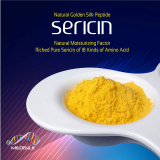silk, fibroin fiber, chemical, bio engineering, tissue engineering, pharmaceutical, smart fabric
silk, fibroin fiber, chemical, bio engineering, tissue engineering, pharmaceutical, smart fabric
Negotiable Min Order Quantity Unit
- Required Quantity
-
- Place of Origin
- Thailand
- Brand name
- VIOSILQ FIBROIN FIBER
- Payment Terms
- T/T
- Production method
- ODM,OEM
- Shipping / Lead Time
- Negotiable / Negotiable
- Keyword
- fabric, silk, tissue engineering, fibroin
QUANTUMM CO., LTD.
- Membership
- VIP
- Recent Visit
- Jan 14, 2025
- Country / Year Established
-
 South Korea
/
2012
South Korea
/
2012
- Business type
- Manufacturer
- Verified Certificate
-
6


| Product name | silk, fibroin fiber, chemical, bio engineering, tissue engineering, pharmaceutical, smart fabric | Certification | - |
|---|---|---|---|
| Category |
Other Fiber
Other Yarn Amino Acids and Coenzymes Cosmetic Raw Materials Hair Care Chemical Raw Materials |
Ingredients | AMINO ACICD,FIBROIN,SILK |
| Keyword | fabric , silk , tissue engineering , fibroin | Unit Size | - |
| Brand name | VIOSILQ FIBROIN FIBER | Unit Weigh | 0 mg |
| origin | Thailand | Stock | 1000 |
| Supply type | ODM,OEM | HS code | 500200 |
Product Information
Fibroin Fiber VIOSILQ

Premium VIOSILQ Cocoons of Unmatched Quality
VIOSILQ grows high-quality mulberry leaves directly in the fertile lands of Chiang Mai and Chiang Rai in northern Thailand. In cooperation with the Thai Ministry of Agriculture and Cooperation, we raise silkworms with farmers and produce high-quality silkworm cocoons. We use white and golden silkworms to produce cocoons all year round.
Along with cocoons, we also produce fibroin fibers, sericin peptides, and especially raw silk non-woven fabrics produced directly by silkworms all year round.


VIOSILQ is ready to supply premium-quality products that customers want and can develop new products in collaboration with customers.




VIOSILQ Fibroin Fiber, extracted from pure silkworm cocoons, is produced through the latest production process and can be used in various applications, from the bioengineering industry to bio cosmetics.
Fibers and textiles play an important role in the development of human society and our daily activities. Innovations related to flexible electronics, such as smart fibers and textiles with sensing, thermal regulation, and energy management capabilities, are generating great interest in both academia and industry. Smart textiles are revolutionizing personal health care and social activities with intelligent wearables.
Smart textiles that sense, interact with, and adapt to environmental stimuli have opened up exciting new opportunities for a variety of applications. However, current advances remain largely in the research phase because of the high cost, the complexity of manufacturing, and the inconvenience of environmentally sensitive materials. In contrast, natural raw silk fiber materials are more attractive for smart textiles due to their low cost and comfort advantages.

Water fog and humidity-driven torsional and tensile actuation of thermally set twisted, coiled, plied silk fibers, and woven textiles from these silk fibers are reported. When exposed to water fog, the torsional silk fiber provides a fully reversible torsional stroke of 547° mm−1. Coiled and thermoset silk yarns provide a 70% contraction when the relative humidity is changed from 20% to 80%. Such an excellent actuation behavior originates from water absorption-induced loss of hydrogen bonds within the silk proteins and the associated structural transformation, which are corroborated by atomistic and macroscopic characterization of silk and molecular dynamics simulations. With its large abundance, cost-effectiveness, and comfort for wearing, the silk muscles will open up additional possibilities in industrial applications, such as smart textiles and soft robotics.
The raw silk fiber is spun from the two glands of the silkworm and is composed of two primary filaments, which comprise fibroin proteins. The brins are glued together to form a base with sericin proteins, which also serve as an adhesive to construct the overall structure of the cocoon, supporting information. The two fibroin filaments near the fiber center are bound together and overcoated with the sericin. The fibroin consists of highly ordered beta-pleated sheets (β-sheets), which assemble because of strong hydrogen bonding and salt linkages between the side groups of the polypeptide chains. These properties make raw silk an ideal candidate for preparing water-actuated artificial muscles for smart textile applications.

Applications of Silk Materials

Bombyx mori silk has attracted extensive attention due to its natural mass production, excellent biocompatibility, and unique mechanical properties. Silkworm silk has been used extensively in textiles for thousands of years due to its glossy appearance, flexibility, and lightweight. Bombyx mori protein fibers are composite materials consisting of a semi-crystalline silk core, mainly silk fibroin, which is responsible for load-bearing capacity, and an outer layer of sericin, which acts as a saponifying agent. Fibroin imparts biocompatibility to fibroin, while sericin is digestible due to its protein properties and its propensity for the action of proteolytic enzymes present in the body. These properties make it biocompatible and biodegradable. Additional properties such as gelling ability, water retention capacity, and skin adhesion make it a widely used material in the medical, pharmaceutical, and cosmetic fields.

Silk as a Biomedical Material
Recently, there has been increasing interest in silk materials for biomedical applications such as biocompatibility, biodegradability, and self-assembly for unique physical, chemical, and mechanical properties. The smaller silk units, called fibroin fibers, have identical repeating amino acid sequences, which influence the protein chain structure and the properties of the silk material. These interesting properties of silk have significant biomedical applications.
Bombyx mori silk fibroin proteins can be subdivided into very large, light (≈26 kDa), and heavy (≈391 kDa) chains, which are linked by a single disulfide bond, and are used in medical applications. However, the very hydrophobic amino acids and antioxidant potential of sericin have applications in food and cosmetics. In the presence of moisture, silk can act as a therapeutic agent for wound healing, cell proliferation stimulation, UV protection, and in cream and shampoo formulations. The antioxidant activity associated with sericin's low digestibility increases its medicinal uses, such as antitumor, antibacterial and anti-inflammatory, anticoagulant, and colon health. Silk performance biocompatibility and biodegradability, use of silk in sutures, surgical meshes, and fabrics, clinical trials such as wound healing, tissue engineering, and novel biomedical applications such as silk solutions, films, scaffolds, electrospun materials, hydrogels, and particles. Extensive research in the field of tissue engineering on silk and silk regenerative properties is related to the impressive mechanical strength of silk. Based on these remarkable properties of silk such as high mechanical strength, biocompatibility, and degradability, it is used in the fields of tissue engineering and regenerative medicine.

The mechanical stability of scaffolds is essential for cells to attach, expand, divide, proliferate, and differentiate. Connective tissues such as tendons, ligaments, bones, and cartilage are also used. Furthermore, scaffolds have shown remarkable biocompatibility characteristics and are used as nanoscale structures for cell recognition and response. As a result, nanofibers are the most suitable form of artificial matrix to be considered in tissue engineering technology.
Electrical and Optical Devices
The electrical properties as a function of temperature and humidity have found applications in battery technology, biosensors, humidity sensors, steam engines, and waste heat management. Metal salts such as FeCl3 and ZnCl2 are derived from natural silk and act as effective activating-graphitizing agents during the dissolution process. In addition to hierarchical porous nitrogen-doped carbon nanosheets and electronic device applications, silk materials have shown great potential in optical applications due to their unique optical properties and diverse nanopatterned structures. Silk fibroin has also been used in various optical devices such as diffractive optical elements (DOEs) and light-emitting diode (LED) lenses. DOEs are attractive for labeled or unlabeled biosensing because their diffraction efficiency is easily influenced by chemical or biological molecules attached to them. Recently, fluorescent silk has attracted tremendous attention due to its potential in cell visualization and scaffold performance monitoring as a novel functionally modified natural biomaterial. Advances in genetic engineering have enabled the ability to produce fluorescent silks in various colors such as red, green, and orange.
Future Trends in Silk
Technologies that apply natural silk include the Internet of Things (IoT), enhanced wireless personal area network (WPAN) systems, image processing technologies and smart sensors, biosensor technologies, public-private partnerships (PPPs), establishment of silkworm banks, and sericulture startups.

A. Application Product Line
VIOSILQ is used as a basic material for bioengineering, tissue engineering, smart fabrics, biocosmetics, and household goods.
B. Product Production
- Annual production and Supply
- Customized production available

B2B Trade
| Price (FOB) | Negotiable | transportation | Air Transportation,Express,Ocean Shipping |
|---|---|---|---|
| MOQ | Negotiable | Leadtime | Negotiable |
| Payment Options | T/T | Shipping time | Negotiable |
- President
- KIM TAEIL
- Address
- 103Gil20, SamSungRo, Gangnam-gu, Seoul, Korea
- Product Category
- Cosmetic Raw Materials,Eye Cream & Mask,Face Mask,Other Fiber,Other Home Products
- Year Established
- 2012
- No. of Total Employees
- 51-100
- Company introduction
-
About the company
We produce face masks, health masks, belly masks, breast patches, tea bags, coffee filters, fibroin fibers, and sericin peptides, based on natural raw silk, and cosmetics based on silk sericin protein, mulberry leaves and powders, and silkworm cocoons.

Sustainable natural silk
production company
Quantumm is the exclusive producer of the brand Viosilq, a 100% natural raw silk nonwoven fabric. In addition, it produces mulberry leaves, mulberry leaf powder, silkworm cocoons, sericin powder, fibroin fibers, and powder. In addition, the brand Natural Sericin and the brand Natural Medisilk produce cosmetics and daily necessities.

VIOSILQ
Viosilq nonwoven fabric is produced directly by silkworms without using chemical fibers, and we have the manufacturing technology for it.
Viosilq is used as a basic material for bioengineering, smart fabrics, biopharmaceuticals, polymers, biocosmetics, facemasks, diapers, feminine hygiene pads, medical masks, medical gowns, and more.
Viosilq also grows eco-friendly mulberry leaves and processes mulberry leaf powder. Mulberry leaf powder is an excellent natural resource used as a raw material in biotechnology, pharmaceuticals, health foods, cosmetics, packaging, and more.
Viosilq is a product that is harmless to the human body and the natural environment. It is also Sustainable, reusable, and biodegradable in a short period of time.

Natural Sericin
Natural Sericin uses sericin, a natural protein extracted from natural golden raw silk, to produce shower gels, body lotions, shampoos, facial mists, liquid soaps, bar soaps, and face masks. Golden sericin contains twice as much natural protein as white sericin. The main functions of sericin, which contains natural moisturizing factors, are antioxidant, anti-aging, skin regeneration, brightening, elasticity, pigmentation relief, UV protection, wound healing, etc. This is a basic biological mechanism originally created by wild silkworms to protect themselves from harsh natural environments and is similar to the main ingredients required for human skin formation.
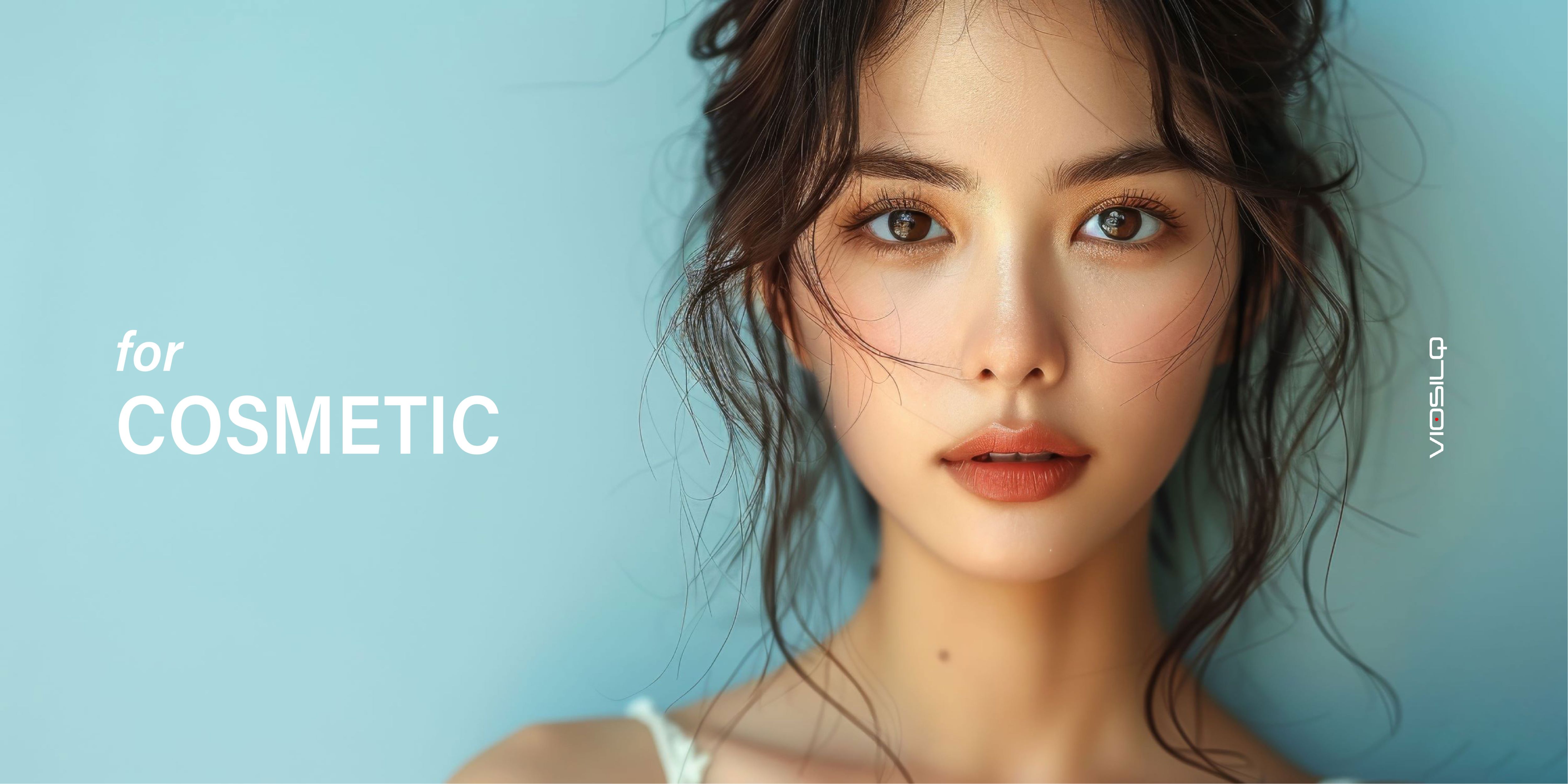
Natural Medisilk
Natural Medisilk uses non-woven raw silk sheets produced directly by silkworms to produce face masks, belly masks, breast patches, eye patches, etc. This product has a dry type that contains essence and a type that is applied directly to the face, belly, breasts, and back after soaking in hot water. The main functions of this product are derived from the Sericin ingredient, including antioxidant, anti-aging, skin regeneration, brightening, elasticity, pigmentation relief, UV protection, wound healing, etc.
In addition, tea bags and coffee filters make the taste even softer and more fragrant, and sericin, which dissolves in hot water, helps maintain health and is harmless to the human body. Sericin is water-soluble and dissolves well in water.
The health mask, made of raw silk non-woven fabric, is hydrophilic, blocks external viruses, bacteria, and fine dust, is comfortable to wear, and does not have bad breath or a chemical smell.

All Quantumm products are based on 100% natural raw silk, which improves the quality of human life and protects the environment.
Quantumm can OEM and ODM, and we always welcome partners who can develop new products using our manufacturing technology. Our doors are always open for you.

*Please be advised that unauthorized use, posting, or distribution of Viosilq's manufacturing technology and posted images for profit to yourself or a third party violates the Unfair CompetitionPrevention and Trade Secrets Act and copyright laws.
- Main Markets
-
 Australia
Australia
 Canada
Canada
 France
France
 U.A.E.
U.A.E.
 U.S.A
U.S.A
- Main Product
Related Products
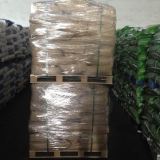
DL-ALANINE
Paeonia root extract (natural anti-microbial, anti-oxidant material)

Limonin
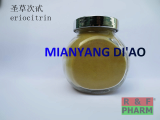
Eriocitrin
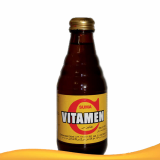
“SUMA” Brand Vitamin C Drink










































